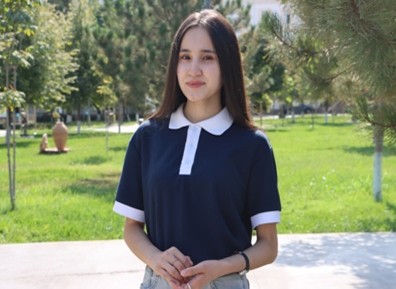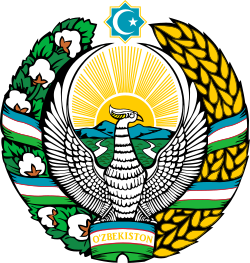Eco-Volunteering at TSUULL
Together for a Greener Campus
At the Tashkent State University of Uzbek Language and Literature (TSUULL), we believe that sustainability begins on campus and extends outward into society. Our Eco-Volunteering Program is a cornerstone of this vision, bringing together students, faculty, staff, and community members in a shared commitment to environmental stewardship, cultural preservation, and social responsibility.
Through eco-volunteering, participants not only contribute to the creation and care of greener spaces but also become active agents in fostering ecological awareness, cultural identity, and community engagement. From planting trees at campus forest to cultivating vegetables in our crop fields and apple orchards, every activity is designed to strengthen the bond between people, knowledge, and the natural environment.
Eco-volunteering at TSUULL is more than a set of practical tasks — it is an educational journey. It allows students to apply theoretical knowledge in real-world contexts, develop transferable skills such as teamwork and leadership, and nurture a sense of responsibility that extends beyond the classroom. For faculty and staff, it is an opportunity to integrate sustainability into research, teaching, and campus management, while for the community, it serves as a bridge to collective action and shared cultural heritage.
In this way, eco-volunteering becomes not only about protecting the environment but also about building connections, practicing responsibility, and shaping future leaders who value both tradition and innovation in creating a sustainable society.
Why Join Eco-Volunteering?
Eco-volunteering provides benefits that go far beyond the classroom:
- • Practical Learning: Apply classroom theory in real-world ecological and cultural projects.
- • Skill Development: Build teamwork, leadership, project management, and problem-solving skills.
- • Global Citizenship: Contribute to the UN Sustainable Development Goals and become part of a global sustainability movement.
- • Community Spirit: Strengthen relationships between students, faculty, and local residents.
- • Recognition: Volunteers receive certificates, awards, and acknowledgment in official university publications.
|
|
 |
|
|
|
|
“Through teamwork in the fields and gardens, |
 |
|
|
|
 |
|
|
|
|
|
 |
Key Activities & Experiences
Eco-volunteers at TSUULL are engaged in a wide variety of hands-on initiatives:
1. Campus Greening & Tree Planting
- • Large-scale reforestation at Akkurgan campus, with over 60% of land being transformed into forest zones.
- • Seasonal tree-planting campaigns involving both local and international volunteers.
- • Long-term maintenance of green zones to improve biodiversity and air quality.
2. University Orchards & Farms
- • Care for the Apple Orchard and Community Farm, where traditional crops and fruit trees are cultivated.
- • Sustainable agriculture practices such as drip irrigation, composting, and organic soil care.
- • Student projects focused on studying crop rotation, pest management, and traditional agricultural heritage.
3. Greenhouse & Crop Field Agriculture
- • Growing fresh vegetables (tomatoes, cucumbers, peppers, leafy greens, onions, etc.) for the university kitchen and residents.
- • Surplus produce sold at local markets, supporting the university community and reducing food waste.
- • Research and innovation in sustainable farming techniques, led by eco-managers and student groups.
4. Clean-Up and Recycling Drives
- • Seasonal clean-up campaigns in orchards, farms, and campus parks.
- • Waste-reduction initiatives, including recycling programs and plastic-free campaigns.
- • Active involvement of local schools and residents to promote environmental responsibility.
5. Biodiversity & Eco-Education
- • Monitoring local flora and fauna to support ecosystem balance.
- • Projects on pollinator-friendly gardens and conservation of native tree species.
- • Eco-awareness workshops and outdoor lectures led by faculty and guest experts.
6. Cultural & Community Engagement
- • Poetry readings, storytelling events, and outdoor seminars in orchards and green spaces.
- • Partnerships with schools, NGOs, and cultural centers to promote sustainable lifestyles.
- • Annual Eco-Festival celebrating volunteer achievements through exhibitions, performances, and markets.
Impact of Eco-Volunteering
Eco-volunteering is measurable in more than numbers — but the impact is clear:
- • Tens of thousands of trees planted across TSUULL campuses.
- • Hundreds of kilograms of vegetables harvested annually, used in the university kitchen and distributed to residents.
- • Dozens of community workshops and clean-up campaigns organized with schools and local partners.
- • Increased student participation, with more than 40% of undergraduates taking part in eco-volunteering.
Economic & Social Benefits
- • Support for the University: Sales from vegetables and fruits grown in orchards and fields help fund student initiatives and sustainability projects.
- • Food Security: Fresh produce supplied to the university kitchen provides healthy meals for students and staff.
- • Employment & Engagement: Creates opportunities for groundskeepers, eco-managers, and student interns.
- • Community Relations: Strengthens ties with local residents by inviting them to participate in planting and harvesting activities.
How to Get Involved
Whether you are a student, faculty member, staff, or visitor, there are many ways to contribute:
1. Join Tree Planting Events – Held every spring and autumn.
2. Volunteer in Orchards & Fields – Help plant, harvest, and maintain sustainable agriculture.
3. Lead or Join Workshops – Share knowledge on sustainability, culture, or language in outdoor spaces.
4. Participate in Clean - Up Drives – Keep our campus and community clean and green.
5. Promote Awareness Online – Share eco-volunteering stories on social media and university platforms.
Apply to Become an Eco-Volunteer
View Upcoming Events




